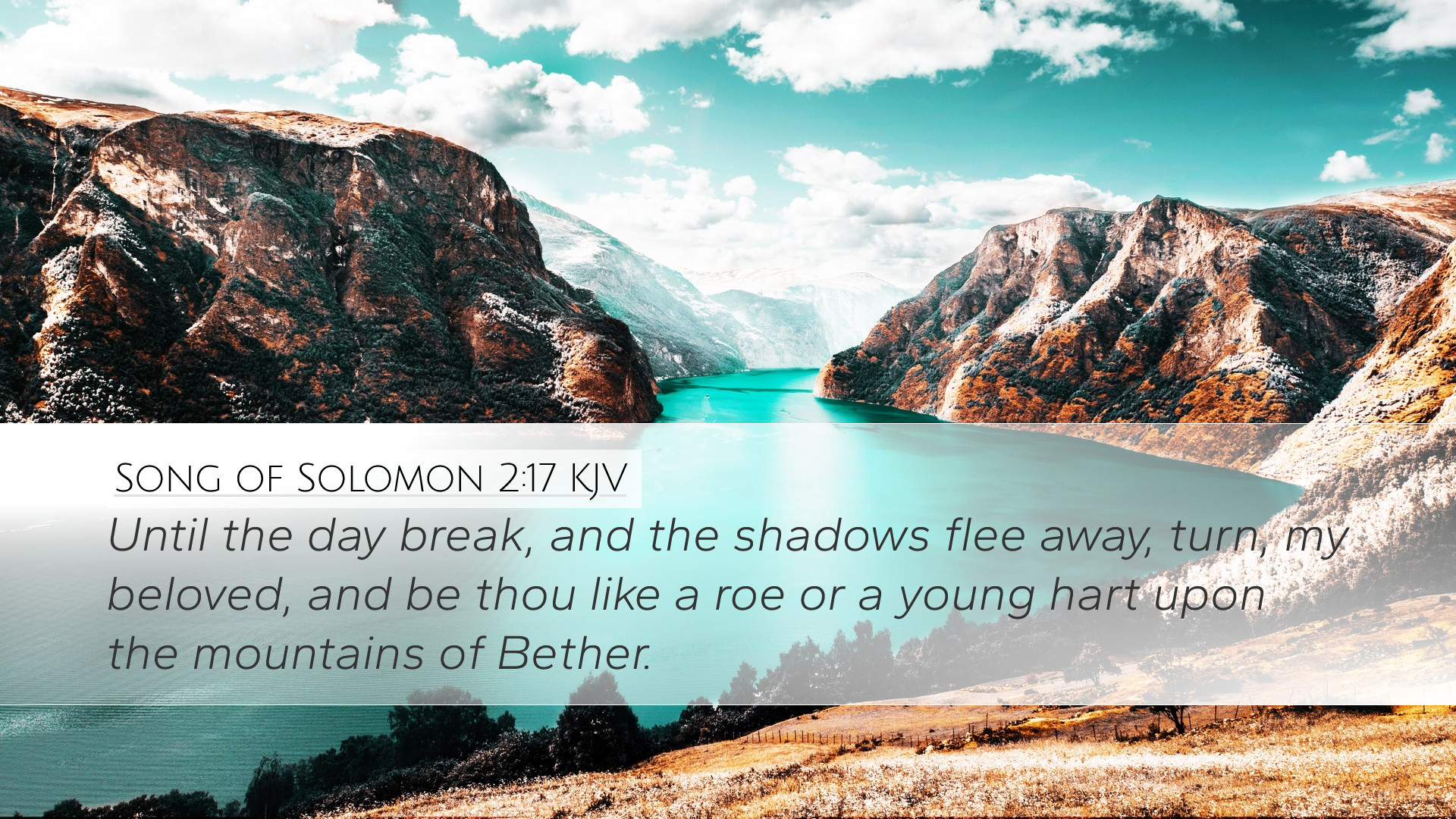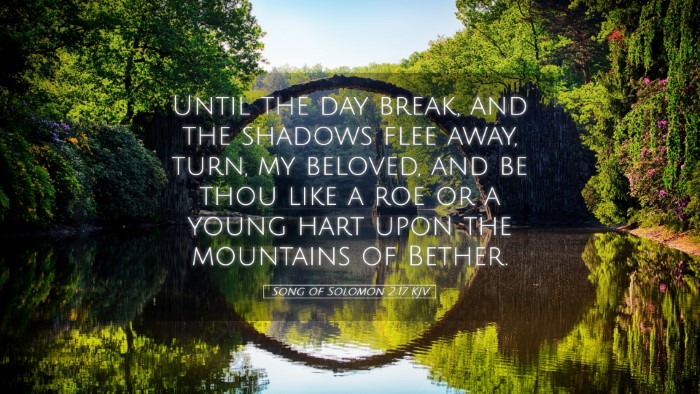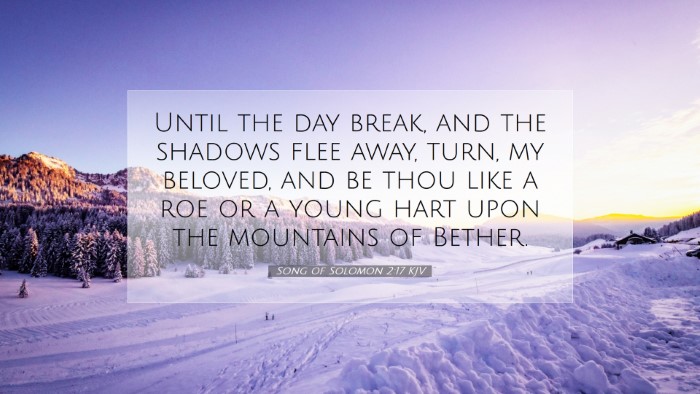Commentary on Song of Solomon 2:17
Verse Text: "Until the day break, and the shadows flee away, turn, my beloved, and be thou like a roe or a young hart upon the mountains of Bether."
Introduction
This verse from the Song of Solomon speaks profoundly of love and longing, offering rich imagery and deep spiritual insights. The beloved expresses a desire for intimacy and nearness, with metaphors suggesting both urgency and beauty. The interplay of light and darkness encapsulated in the themes of daybreak and shadows will be explored through the lenses of notable public domain commentaries.
Analysis of Key Themes
- The Desire for Closeness: The phrase "turn, my beloved" indicates a deep yearning for the beloved's presence. This sentiment resonates throughout the Song of Solomon, symbolizing not only romantic love but also an allegorical representation of the relationship between the soul and God.
- Light vs. Darkness: The mention of "day break" underlines the transition from night (symbolizing troubles, sin, or separation) to day (representing clarity, joy, and divine presence). This theme reflects the overall joyful culmination of the union expressed throughout the text.
- Imagery of the Roe and the Young Hart: The metaphor of the deer (roe or young hart) evokes notions of grace and agility. It emphasizes both the beauty and the swiftness of love. The beloved is called to embody both traits, suggesting an essence that transcends mere human experience and reaches into the divine.
- The Mountains of Bether: Although the exact location is ambiguous, "Bether" means "division" or "separation," symbolizing obstacles in the relationship. This brings a profound depth to the yearning expressed in the text, as it acknowledges the realities of distance and relational challenges.
Insights from Matthew Henry
Matthew Henry emphasizes the connection between the marital bond and the divine intentions for love. He points out that this yearning signifies an earnest expectation of the beloved's return, paralleled to the church's longing for Christ.
He notes that the call to "turn" reflects an invitation for mutual engagement and movement towards one another, reminiscent of the interaction between God and humanity. Henry also highlights the significance of the metaphorical light of day, linking it to the ultimate revelation of divine truth and glory in personal relationships.
Insights from Albert Barnes
Barnes provides a detailed examination of the duality present in this verse. He elucidates the spiritual implications of the phrase "until the day break." Barnes interprets this from a prophetic standpoint, suggesting a divine assurance that the shadows of trials will eventually clear, giving way to divine illumination.
Furthermore, he mentions the urgency embedded within the repeated call to the beloved, framing it within the context of spiritual longing—where the absence of God is felt as a profound loss.
Insights from Adam Clarke
Adam Clarke offers a rich linguistic analysis of the text, pointing out that the poetic structure enhances the emotional weight of the message. He underscores the significance of using a deer in the metaphor, which implies not only beauty but also a sense of gentleness and vulnerability.
Clarke adds that the mountains of Bether denote a barrier that lovers must face—symbolizing both emotional and spiritual separations. This interpretation invites readers to reflect on their own barriers in relationships, whether earthly or divine.
Theological Implications
The longing expressed in Song of Solomon 2:17 transcends mere romantic love; it speaks to a much deeper theological truth. The text invites reflections on God's pursuit of His people, the human need for divine connection, and the duality of love as both a personal and communal experience.
In considering the metaphor of light breaking through shadows, we are reminded of the consummation of love that God has for humanity. The anticipated return of the beloved parallels the ultimate hope of believers in Christ's second coming, where shadows will ultimately flee and love will be perfectly realized.
Conclusion
Song of Solomon 2:17 encapsulates a vivid longing which resonates deeply with those who seek to understand the dynamics of love—both human and divine. The images of daybreak, the urgency for closeness, and the recognition of barriers in love's journey invite pastors, theologians, and scholars alike to explore these themes in their teachings and worship. This verse serves not only as a poetic expression but as an enduring reminder of the beauty and complexity of love that seeks to break through the shadows into the light.


